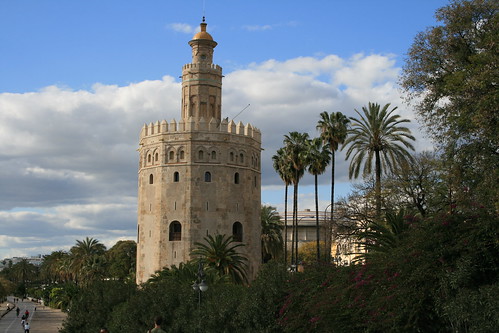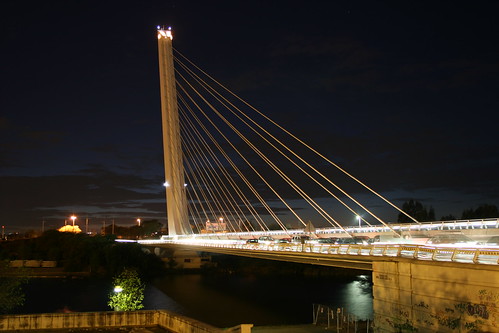About Seville
Seville (Sevilla in Spanish) is located in the SW of Spain and it is the capital of Andalusia. At the same time, it can be considered the fourth most important city of Spain in terms of population (it is of 704.114 in the metropolitan area). If we take into account not only the capital but also the 104 towns of the province, then there are 1.758.720 inhabitants in a surface of 14.042 square kilometres. Seville can doubtless be considered, artistically, culturally and economically the center of the south of Spain.
Seville is the heir of diverse cultures that settled for thousands years along the shores of the river Guadalquivir. It owns an important artistic and monumental heritage, from which we can highlight the civil architecture, including palaces, government buildings, hospitals and the University among others. In addition, we can also find a huge number of churches and convents.
Two very important exhibitions which were held in the city (Iberoamerican Exposition in 1929 and Universal Exposition in 1992) have contributed to enrich even more the artistic heritage of Seville. It is also worth mentioning its museums, located in buildings with a high relevance, and its bridges, so characteristic of the city. Both brilliant and proud, Seville keeps the key of a mystery that several romantic authors tried to describe in mythic masterpieces as Carmen, the Barber of Seville or Don Juan, among others.
You will encounter a city that is the result of bringing together its ancient heritage and today's modern reality. A symbiosis that respects its history and offers contemporary infrastructures that allow Seville to be a first order tourist destination, not only for individual tourists, but also for visitors coming to conferences or business meetings.
Interesting links
- Official tourism website of Andalusia (available in English, French and German).
- Official tourism website of Sevilla and its surrounding towns (available in English, French, German and Italian)
- Information about Sevilla (in English) Information about History, Events, general information and pictures.
- The Wikipedia article of Seville in english.
- CNN Weather in Sevilla.
Some pictures of Seville:

"La Giralda"

"Torre del oro"

"Plaza de España"

"Alamillo bridge"
